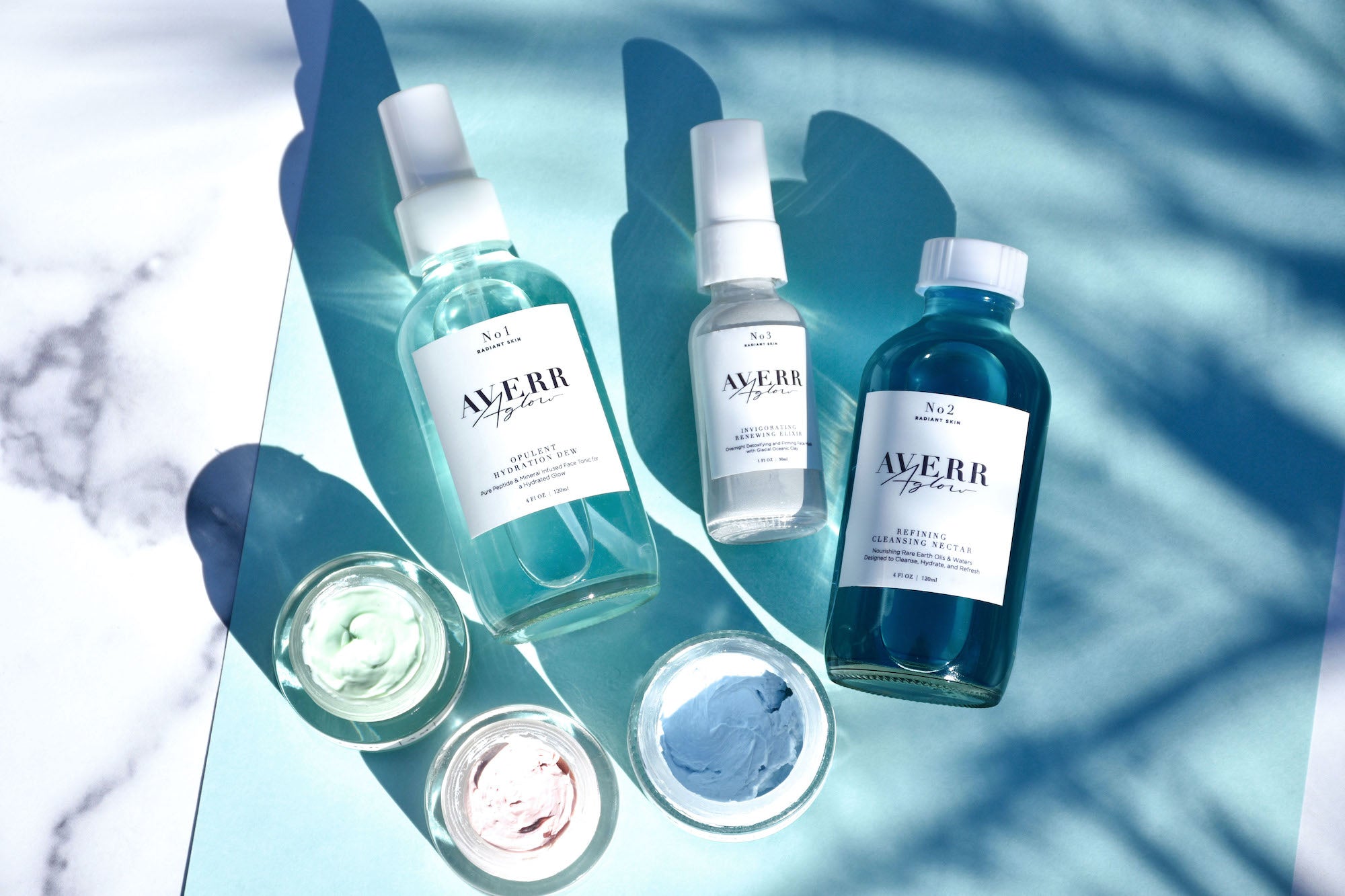
Aging on Dark Skin: Why You Actually Need A Preventative Skincare Routine
Growing up, I had an unhealthy obsession with staring at people. Hiding under my mom's skirt any chance I could get, I would look at those passing by as an opportunity for examination.
I looked wide-eyed at my parents, grandparents, and family friends who were much older— but often didn't look their age. Their skin was smooth and rich, like melted artisanal chocolate. Seeing the occasional crow's feet or fine lines, it wasn't until they had reached a great age that I genuinely saw wrinkles.
As a woman of color, I came to hear many explanations for why this was the case. For as long as I can remember, these memories shaped my earliest perspectives on what to expect when I got older.
Accepting that my skin would stay young forever, I gave little thought to what would happen when I did see those first signs of aging. The Peter Pan idea that black and brown skin never ages is a wealthy proposition that is laden with pride. However, for a person of color, it is not as realistic as you might think. The truth is this idea has been an anthem when we have desperately needed something to uplift us. But does it mean that we don’t need to take care of our skin and prevent the eventual signs that catch up with us all?
Your mind might be telling you:
"You don't need anti-aging. Your skin will hold up! Don't forget that melanin is on your side."
Or,
"My mom doesn't use anti-aging, and look how good she looks. The signs that I see are probably just all in my mind!"
The issue with these thoughts? Your mind is tricking you out of something that your eyes caught onto a long time ago. Aging is a part of life, even for those with brown skin. But prevention is the golden ticket.
What is the Truth Behind Aging on Darker Skin
What if I told you that the idea that darker skin doesn’t age is wrong?
Now, I know you might be thinking, "Nope. It’s absolutely 100! Haven't you seen those pictures of Naomi Campbell and Jlo on Instagram?"
My answer: Of course! No one can deny the beauty of these queens. And while they are timeless, side-by-side pictures of them from their twenties to now will reveal differences. From the lines around their eyes to the lines that have settled into their neck, there are signs of aging. (Let's also not forget that they both have commented on the benefit of taking care of their skin.)
Often the idea of ageless perfection on darker skin has made the thought of aging uncomfortable and hard to accept.
This is why you may have found yourself shying away from the department store counters touting new anti-aging products or skating around conversations with friends and family when someone mentions the ever-increasing wrinkle creeping its way across your forehead. The signs you’re seeing are trying to tell you something.
Is it a scientific fact that darker skin tones age at a slower rate than other skin tones? Yes. This is because of two factors in particular :
- Greater amounts of elastic and collagen fibers that degrade less over time. Which, in turn, helps the skin stay firmer and smoother for longer.
- More significant amounts of melanin help fight against UV radiation caused by the sun, which can lessen the overall damage inflicted on the skin.
While these may reinforce the idea that we don’t need to think about effective aging routines...
Think again.
These factors won't save your skin forever. The truth is: that we aren't ageless unicorns, even though we like to pride ourselves on it. Science tells us that there are some advantages to our skin's richness. But, the fact remains our skin can and does age.
Over time your skin is more prone to a rough exterior, discoloration, and permanent dark spots than lighter skin tones. That is why it's pretty common to see darker areas around the eyes, nose, and neck for a person of color.
Not to mention the gradual wrinkling and sagging that will occur over time due to the weight of those extra fibers that were once helping the skin. These are all signs that your skin is progressively changing.
Dermatologist Michelle Henry, MD explains, "It's not that [Black and Brown women] don't age, we just age differently. [The skin] may not crack as early… but it does fall, sag, and dull," adding that those with darker skin are also more prone to "hollowing" under the eyes.
There is no doubt that brown skin is remarkably beautiful and can weather the storm of aging pretty well, but it can only hold on for so long before succumbing to the signs of aging. And that is where prevention comes in. Preventing those signs before they begin is the best way to keep your skin forever radiant.
Age Prevention for Dark Skin
From fine lines to discoloration, it can be hard to discern the right course of action for your skin.
You have probably heard about anti-aging and thought, "I’m not going to use that. I'm too young for it anyway." The truth? You're right. Anti-aging is designed to reverse the signs of aging and is often meant for a much older crowd searching for a quick fix. In addition, the harsh chemicals and synthetic ingredients found within most of these products often hurt the skin more than help it.
That is why preventative aging is necessary for those with darker skin and all shades of skin tones. You're not alone.

Preventative aging acknowledges that aging happens at a slower rate in people of color, but that it still happens. It also simultaneously softens the appearance of existing skin issues. How does it do this? By healing it from the inside out.
Here's an example:
Imagine for a moment that you bought a baby juniper bonsai tree. You read up on how to take care of it, and you do everything it says. You keep it in mild temperatures. You don't overwater it. You use organic fertilizer pellets during the growing season and properly prune any foliage pads to keep them from getting too dense. The issue? You forget to heavily wire this young tree and wrap its branches so that it grows strong from within. Before you know it, the tree begins to wither and wilt from the inside, and while it may look okay on the outside (showing only slight discoloration), it only gets worse with time. Eventually, the tree will break down and have unrepairable internal and external damage.
It's the same situation with your skin. While it may be a slower progression, the lack of care and proper attention can have a serious impact on your skin's health.
Is that worth it?
Why Preventative Aging Works for Darker Skin
When it comes to choosing the right products that can help your skin, the pickings are often slim for a person of color. Searching reviews and ads, you investigate every new product before buying it, to see if others with the same skin concerns have tried it. A quick way to eliminate the extra stress is to go straight to the ingredients.
Here are some of the skin-saving ingredients featured in our Forever Radiant line.
- Glacial Oceanic Clay - a high-purity clay that helps reduce pores' appearance, promote blood circulation, diminish fine lines and wrinkles, and firm your skin.
- Kahai Oil - With high vitamin E and retinol levels, this ingredient contains 50% more vitamin E than most ingredients, double the amount of linoleic acid when compared to argan oil, and 3 times more retinol than rosehip oil. It helps your skin prevent and fight the visible signs of aging like sagging, wrinkling, and discoloration. It can also help the skin keep its rich tone for longer.
- Bakuchiol - A plant alternative to retinol that helps improve the look and feel of your skin without irritation.
- Candyleaf Extract - Through the power of potent antioxidants, candyleaf helps prevent and minimize the appearance of wrinkles while helping even out your complexion and protect your skin from harmful free radicals that could cause cell damage.
The Forever Radiant Kit is the first preventative aging routine on the market and features over 50 natural-based ingredients. Each ingredient serves a purpose for the skin and works simultaneously to nourish, refine, and rejuvenate the complexion.
For every concern, there is an ingredient waiting to help. The Forever Radiant Kit was designed from the beginning for all skin types and to provide the kind of nourishment that would help the skin.

From discoloration to keeping your skin firm for years to come, this kit addresses the concerns that affect us most. For all of the times that a skincare brand let you down, find the answer you have been needing in Averr Aglow.
Want to see how we can help your beautiful skin? Invest in yourself with our Forever Radiant Kit today.





